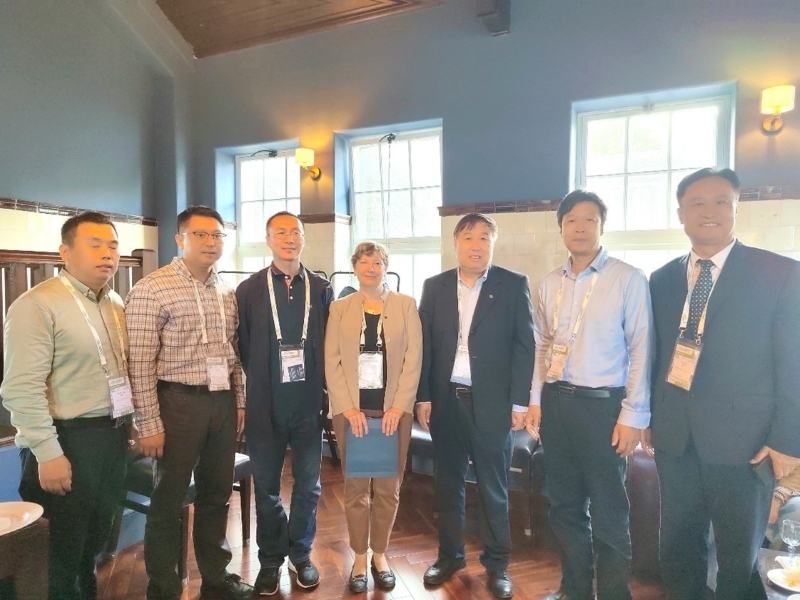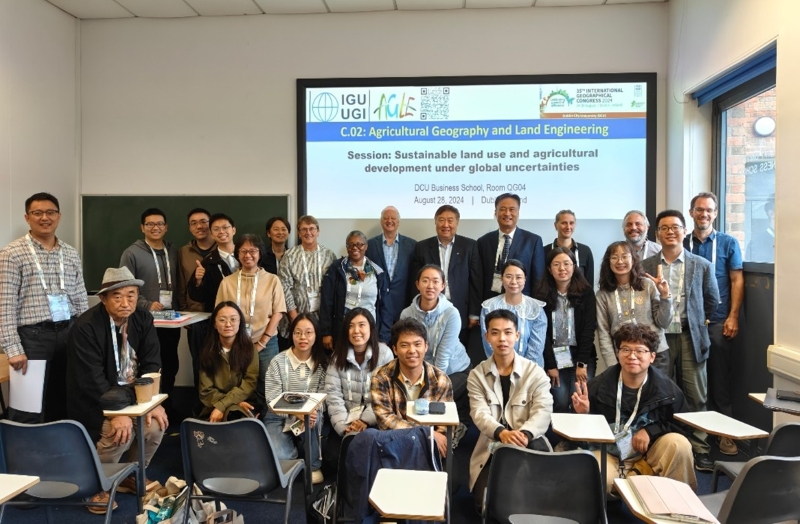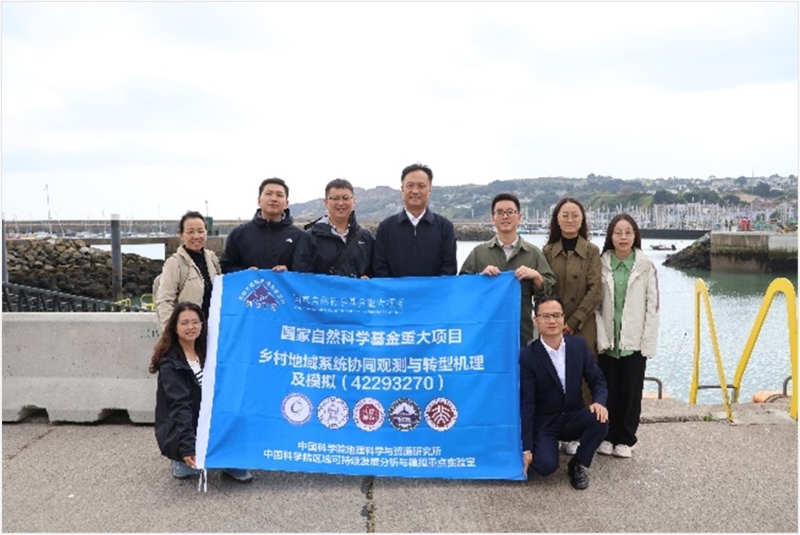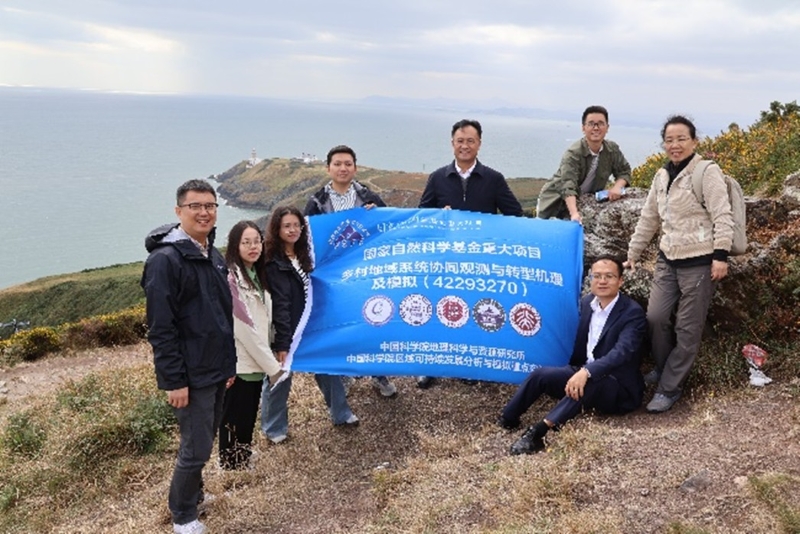The 35th International Geographical Congress (IGC2024) was held with great pomp in Dublin, the capital of Ireland, under the theme “Celebrating a World of Difference.” This prestigious gathering saw participation from over 2,600 experts and scholars from more than 100 countries, comprising various activities such as IGU General Assemblies, exhibitions, and field excursions. During the congress, Prof. Liu Yansui actively engaged in academic discussions with both domestic and international colleagues, providing a detailed overview of the research center's developmental positioning, research areas, supporting platforms, and significant projects undertaken in recent years. These exchanges explored potential collaborative efforts in areas such as conference organization, platform construction, talent development, achievement publication, and field investigations.

Newly elected IGU President Nathalie Lemarchand, Fu Bojie, Chen Fahu and Liu Yansui pose with the winners
The congress featured more than 200 scientific sessions. Liu Yansui, President of IGU-AGLE, along with Vice President Guy Robinson and Assistant Researcher Feng Weilun, served as conveners for a session titled “Sustainable Land Use and Agricultural Development under Global Uncertainties.” Following prior promotional activities, a total of 75 scholars from over ten countries registered for active participation. On August 28th and 29th, the session was divided into four time slots, featuring 16 academic presentations from presenters across China, Sweden, Australia, India, Japan, Ireland, and other regions. Prof. Liu Yansui acted as the chair the session, while Prof. Li Yurui, Prof. Guy Robinson, Dr. Feng Weilun, and Prof. Liao Heping served as segment hosts. Notably, on the morning of August 28th, IGU Vice President Fu Bojie attended the session, offering guidance and encouragement to the scholars present, and fostering rich academic exchanges.

During the conference, Prof. Liu Yansui delivered a presentation titled “Human-Earth System Science and Geographical Research”. In this presentation, he addressed the issues of sustainable development within the context of global climate change and globalization. He emphasized that the human-earth system represents a critical intersection of natural and social science research. Utilizing various data sources and targeted modeling approaches, he revealed the typology, structure, and spatiotemporal evolution of human-earth systems across global, regional, county, and village scales. Liu proposed innovative pathways for modern agricultural transformation and rural revitalization based on insights derived from human-earth system science. Following Liu's presentation, Dr. Feng Weilun presented on the “Feasibility and Application of Soil Reconstruction Technology for Farmland Consolidation in China's Loess Plateau.”
One of the highlights of the congress was the awarding of international prizes by the International Geographical Union (IGU) on the afternoon of August 29th. Prof. Li Yurui from the CRARD center was honored with the prestigious 2024 IGU Award for Distinguished Geographical Practice. This award recognizes geographers whose academic contributions have been widely adopted and applied across various fields and who have made outstanding contributions to the discipline. Established in 2022 during IGU's centenary celebrations, this award acknowledges exceptional practices in geography. Additionally, Prof. Liu Yansui received the inaugural IGU Award for Distinguished Geographical Practice.
Utilizing the opportunity presented by the conference, the attending team also organized professional research and surveys. On August 26th, Prof. Liu Yansui led an expedition to the suburban and nearby rural areas of Dublin, focusing on themes such as agricultural biodiversity conservation, multifunctional agriculture, and rural complex and agricultural development models. The team conducted field surveys in representative rural areas, including Blessington (ecological rural type), Glencullen (coordinated residential type), Killiney (suburban integration type), and Howth (coastal tourism type). Through these extensive rural field surveys, the center's members engaged in productive discussions surrounding issues of rural ecological industrialization, livable rural development, infrastructure support, and the development of distinctive industries, thereby laying a solid foundation for subsequent comparative research on modern agriculture and rural transformation development models between China and Europe.


This delegation to the conference marks one of the largest international academic exchange initiatives undertaken by IGU-AGLE in recent years. Liu Yansui's work, “Urban-Rural Transformation Geography” (Springer Nature, 2021), has garnered appreciation and acclaim among professional peers. The team continues to vigorously promote talent cultivation, platform construction, and observation research initiatives to foster deep domestic and international collaborations. Focused on addressing key scientific issues related to the evolution and optimization of agricultural spatial patterns and the transformation of rural spatial systems under global change, the center aims to reveal innovative pathways for coupling human-earth systems and exploring rural-urban integration development in the global poverty alleviation and development process, thereby contributing Chinese geographical wisdom on the international stage.